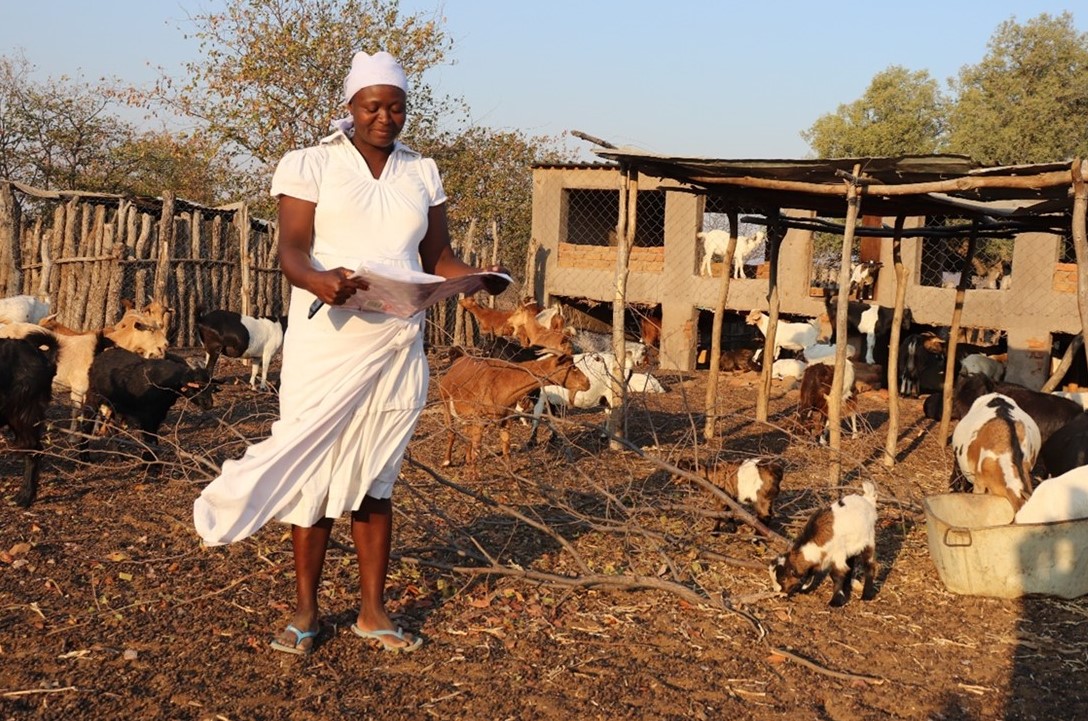
Christine Mudzingwa of Buhera South in Manicaland project started goat production in 2008 and was hamstrung by various challenges that hampered her development to commercialisation. She was grateful to join the European Union (EU) funded Value Chain Alliance for Livestock Upgrading and Empowerment (VALUE) project in 2019 as an Anchor Farmer. An Anchor Farmer leads a group of other farmers within their locality with technical expertise to enable growth towards commercialisation.
“Before the coming in of the project, my enterprise suffered from many challenges including disease outbreaks due to poor husbandry practices, absence of appropriate goat housing, malnutrition, as well as poor breeds,” says Christine.
With support from the project, Christine and her group of nine female farmers received a Boer buck for breed improvement for breeding and slaughter stock to address the effects of indiscriminate breeding coupled with inbreeding. The impact of the breeding intervention has been notable with improved size and growth rate among the offspring, at 3 months the weight is almost equivalent to that of a grown indigenous breed.
“From the first cycle of cross breeding I received 10 kids whose birth weights impressed me a lot, other members of my group also received a sizeable number of kids.” Market linkages For Christine and many small-scale farmers like her, accessing competitive markets was a perennial challenge rendering the goat enterprise as unprofitable. The direct meat marketing initiatives introduced by the project has since changes that status quo.
Christine recounts her experience from the Direct Meat Marketing (DMM) initiative. “We used to sell to the local markets at low prices to those requiring meat for household consumption or performing some traditional rites. Under the DMM I sent 11 small goats to Harare butcheries profiled by the project and received USD 480 an average of USD43 per goat. We were paid USD3.50 per kg, USD2.20 for offals and USD1 for goat sets.” Supplementary feeds Christine is among farmers in Buhera South who attended a training on supplementary feed formulation using locally available materials.
Using the experience gained, Christine has begun to formulate feed for her goats using materials such as mulberry fruits, acacia pods, Lablab, velvet bean.
“There is a great change in the body score condition because of the adoption of the supplementary feeding in our production standards,” said Christine.
Watch Christine's video below:
